Manu Conservation Internship
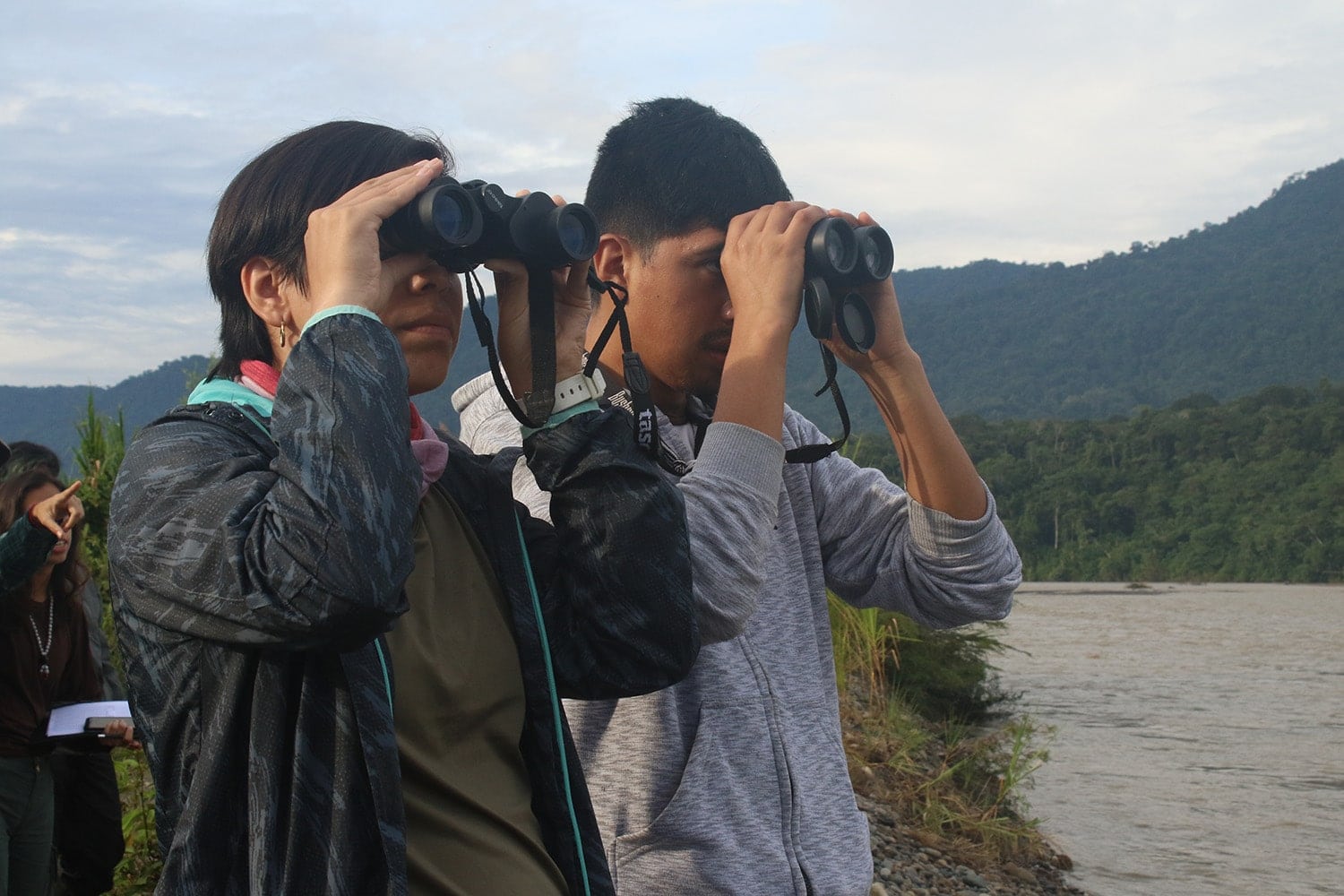
Our conservation internship is a structured long-standing Manu experiential learning programme in Manu Rainforest where you are going to spend everyday exploring the rainforest, getting to know it intimately and meeting its wild creatures.d
You will gain practical, hands-on knowledge of biodiversity conservation, research, tropical ecology survey techniques and group leadership, while supporting sustainable development initiatives.
These field work skills and experience will enhance your career prospects and help your professional and personal growth.
You will be mentored by highly trained professionals; the team will set you challenging goals and objectives to ensure that you reach your full potential, while creating a supportive working environment.
During your conservation internship you will understand the complex social, economic and political challenges facing Manu, as we work together to conserve the rainforest and empower communities through improved livelihoods and living standards because it would not be possible without your support.
Let’s kick start your conservation career. We have two conservation internships available with a duration of 3 or 6 months in Manu Amazon Rainforest.
DURATION
LODGING
TYPE
A day as a Conservation Intern
Amazon Sunrise at 5.30 am
You wake up to the familiar squawks and chatter of charismatic macaws and mischievous Capuchin monkeys. After a typical Peruvian breakfast with the team, you organise your survey equipment for the day and give your leading group a tropical forest safety briefing.
There are three months in your internship already and you have passed your training phase and have been signed off on all the surveys by your mentor. You’re now qualified to lead volunteer groups.
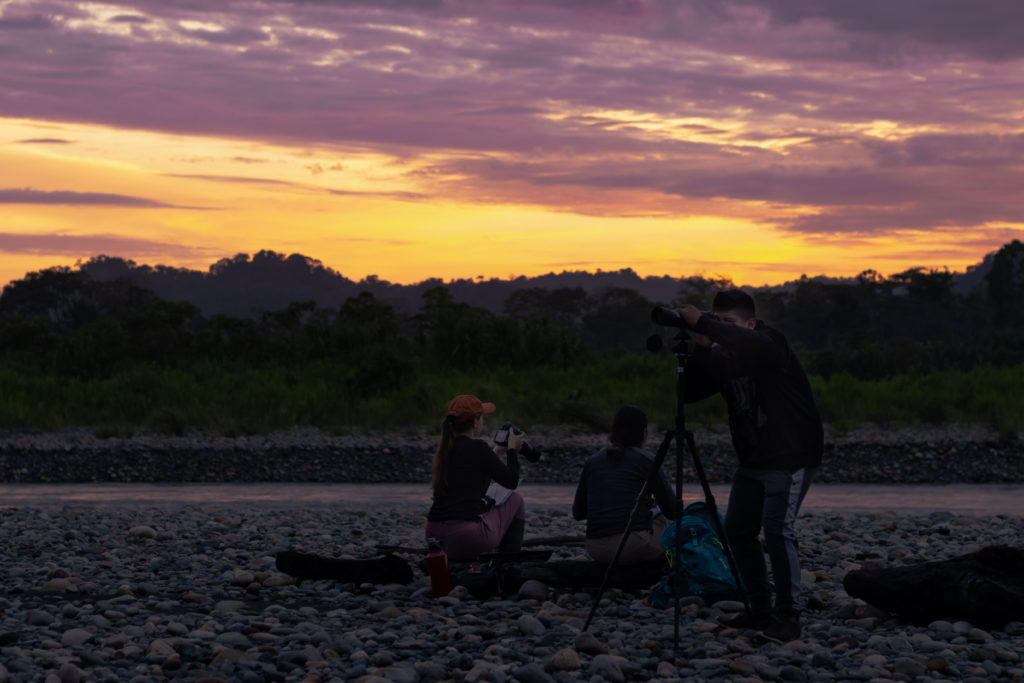
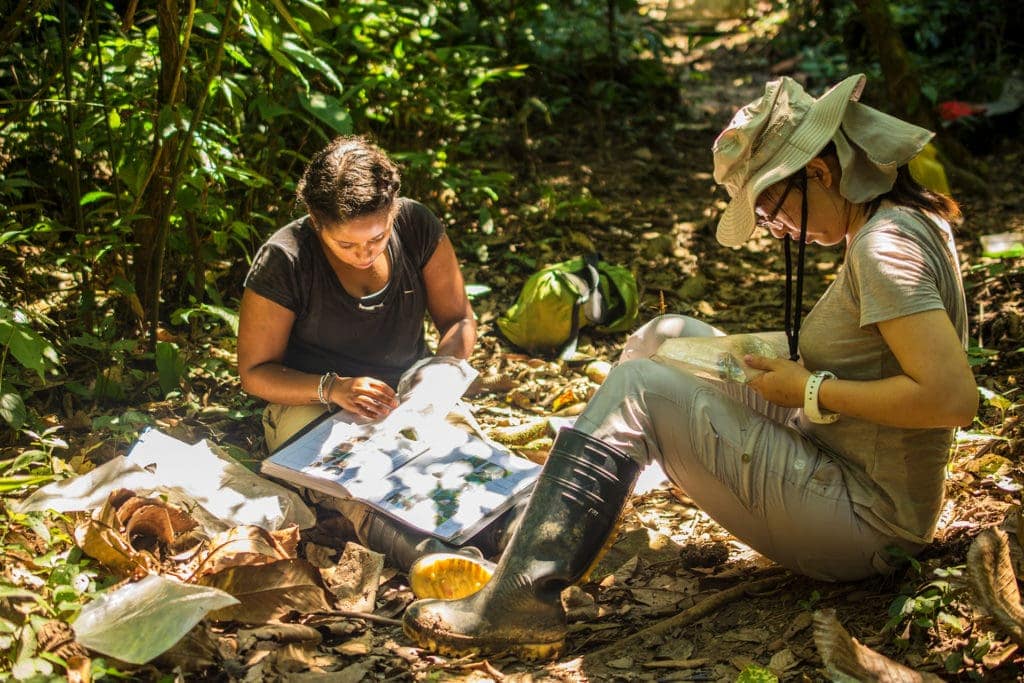
Survey Leadership – 8.00 am
You lead your team into the rainforest; the thought of this would have terrified you just a few months ago, but now you know the maze of trails intimately and feel completely comfortable in the remote rainforest.
Today you will be teaching the volunteers how to survey the immense diversity of Amazonian butterflies, how to handle, identify and record the butterflies’ data.
This is the survey that you chose to specialise in and you can do it in your sleep now. But you never get bored of teaching new volunteers about bioindicators of species and how butterflies can help us better understand the health of an ecosystem. You are amazed by how much you have learnt and all you can teach now.
Jungle Lunch – 12.30 pm
After a busy morning leading your group through the surveys and teaching them all you have learnt about tropical fauna and flora, it is time to relax by the stream and tuck into your packed lunch. You bask in the sunshine and enjoy the sounds of the rainforest.
It is the time you tell your team stories about jungle life and what has been the best wildlife sighting so far. You make sure everyone in the group is happy, you make a mental check that no-one is showing signs of dehydration and you ensure that team dynamics are good and are ready to get back to work.
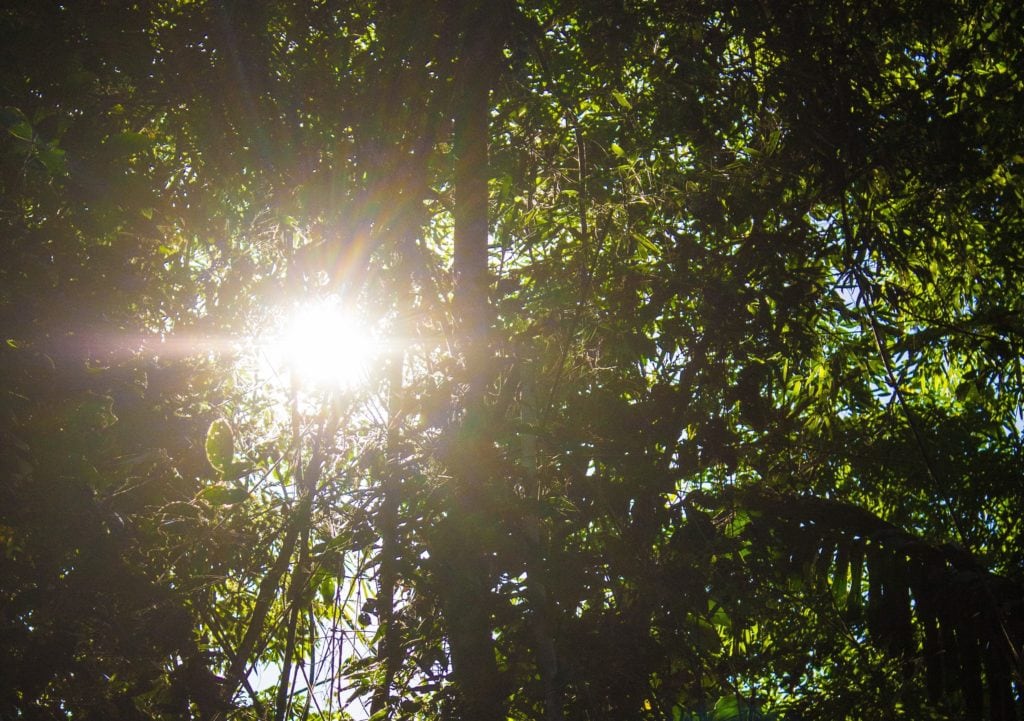
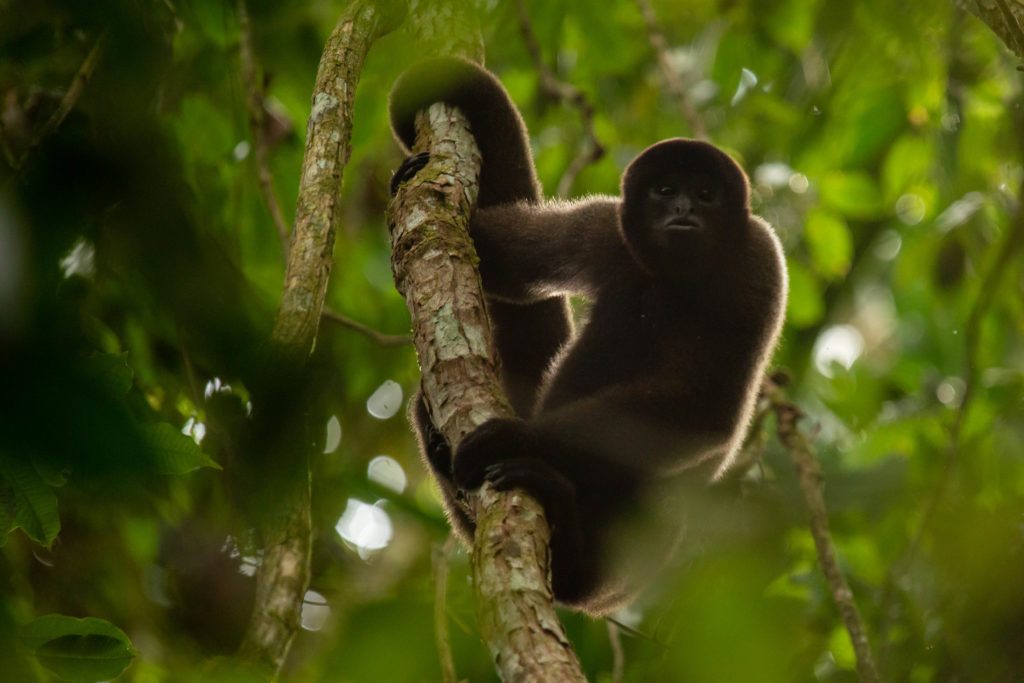
Wildlife Encounters – 1.30pm
While completing the afternoon’s surveys and data collection, you keep an eye out for your next wildlife encounter – there could be a troop of cute-faced squirrel monkeys in the canopy, or a herd of stampeding peccaries around the corner. You teach your guest group about the rainforests’ diversity of plants and wildlife. With tired legs, you lead your team back to camp.
Scientific Process – 5.00pm
After a busy day trekking through the rainforest, it is time to enter the data and identify any unknown species you have come across. It’s great to know that the data sets will be used in scientific papers and help conservation policies.
You teach your guest group about the importance of collecting and entering data, you help them identify new species that they have never seen before, and make sure everything is set up for tomorrow’s field work. It is time for a much-needed hot shower.
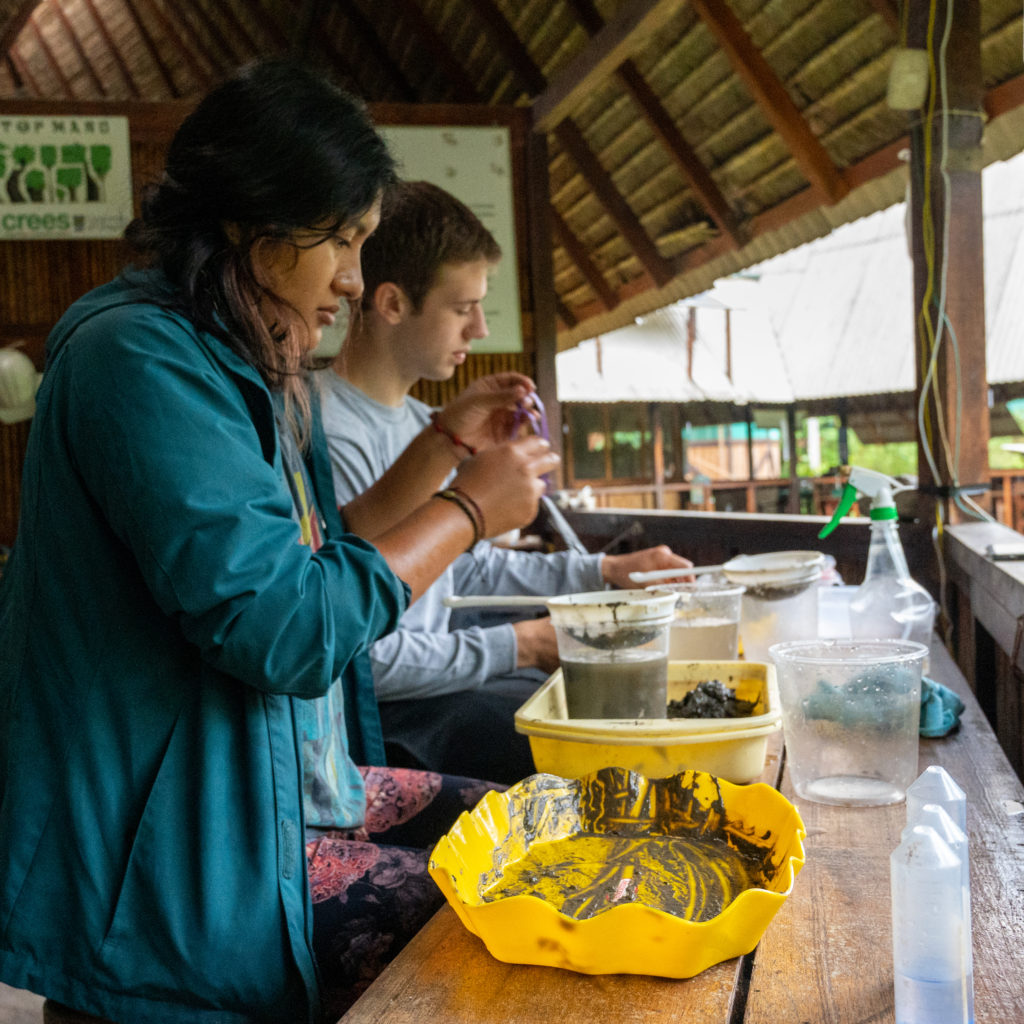
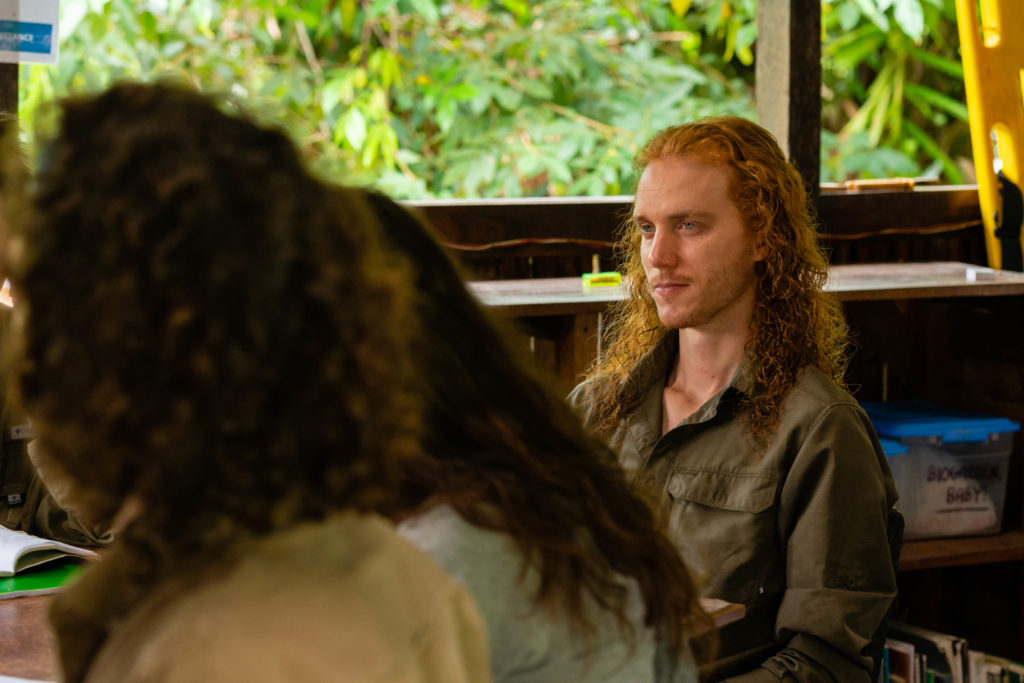
Camp Gossip – 6.30pm
You enjoy a hearty Peruvian dinner with the team swapping stories about the day’s best wildlife sightings. You get to know the new group of guests and tell tales about jungle life. After a good natter, you help the kitchen staff with the washing up and practice the colourful Peruvian Spanish phrases they’ve been teaching you.
Presentation Assessment – 8.00pm
Tonight you are giving a presentation to the team about your chosen subject, that can be the fascinating world of symbiosis. You have been researching the topic for the past few weeks and have been practising it in English and Spanish because you are much more confident speaking Spanglish after your week at a home-stay and Spanish school in Cusco that you completed as part of the Manu internship programme. You are nervous, but you know that your work colleagues and friends are all there to support you.
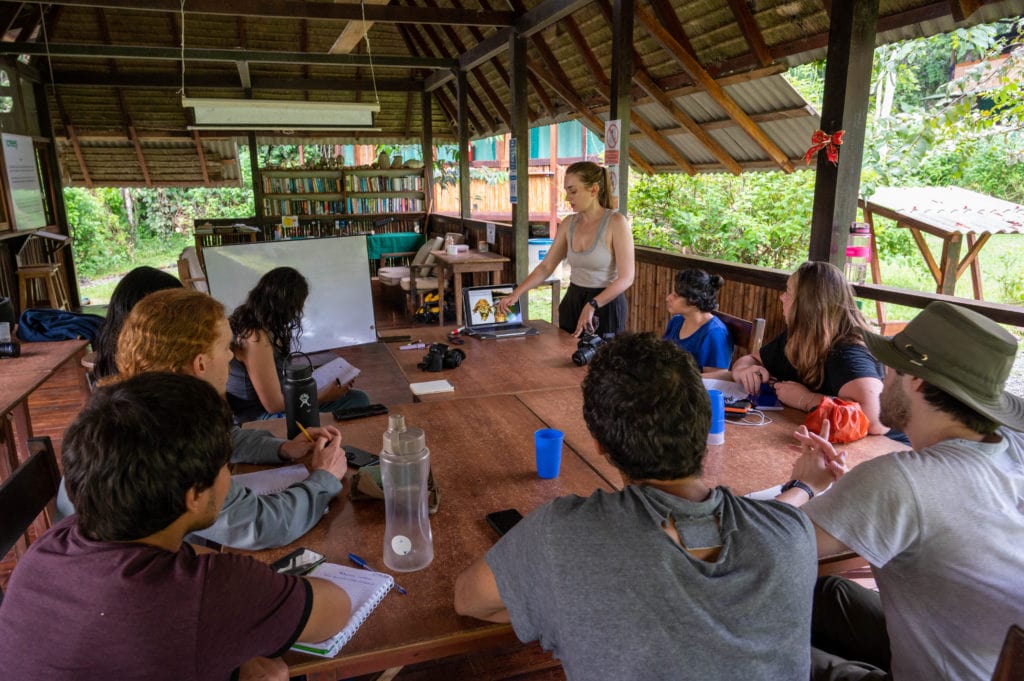
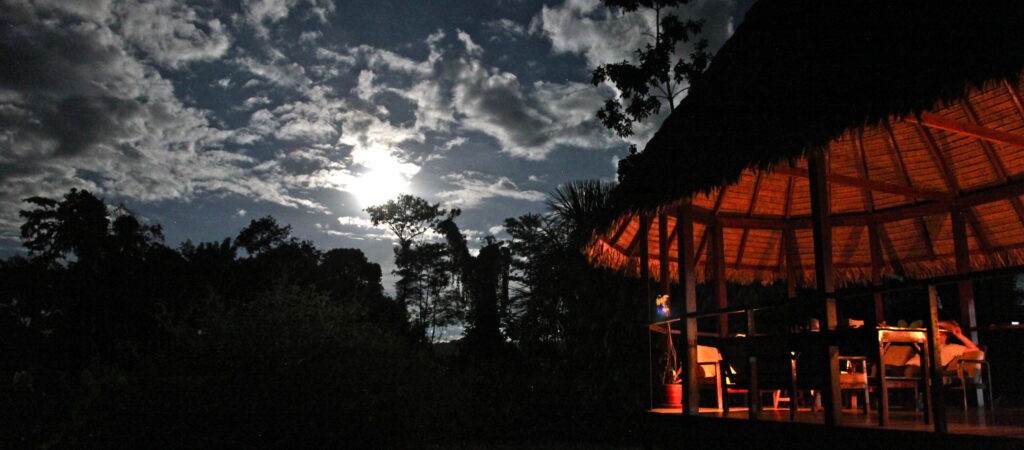
Celebration Time – 9.00pm
You are really pleased by what you have achieved today and have a cold beer with the team to celebrate. Tired and fulfilled after the day’s achievements, you are on the way to bed but take a moment to stand in awe of the amazing starscape and the milky way like you have never seen it before. Finally, you hit your pillow for an early night, in preparation for the new adventures and experiences that tomorrow will bring.
At the end of this Manu internship you will achieve:
- Skills and experience in biodiversity conservation
- Research, tropical ecology survey techniques
- Volunteer leadership
- Actively support our conservation and community projects in the Amazon.
- One-to-one mentorship with a highly trained team member
- Receive support needed to reach your aims and objectives as you progress through our structured education programme.
DATES FOR 2025
Manu Conservation Internship start dates are:
- January 27th
- February 24th
- March 24th
- April 21st
- May 19th
- June 16th
- July 14th
- August 11th
- September 8th
- October 6th
- November 3rd
- December 1st
Booking a Manu internship with crees will not only allow you to access one of the world’s most amazing places, it also makes a sustained contribution to help protect the Amazon and its people.
